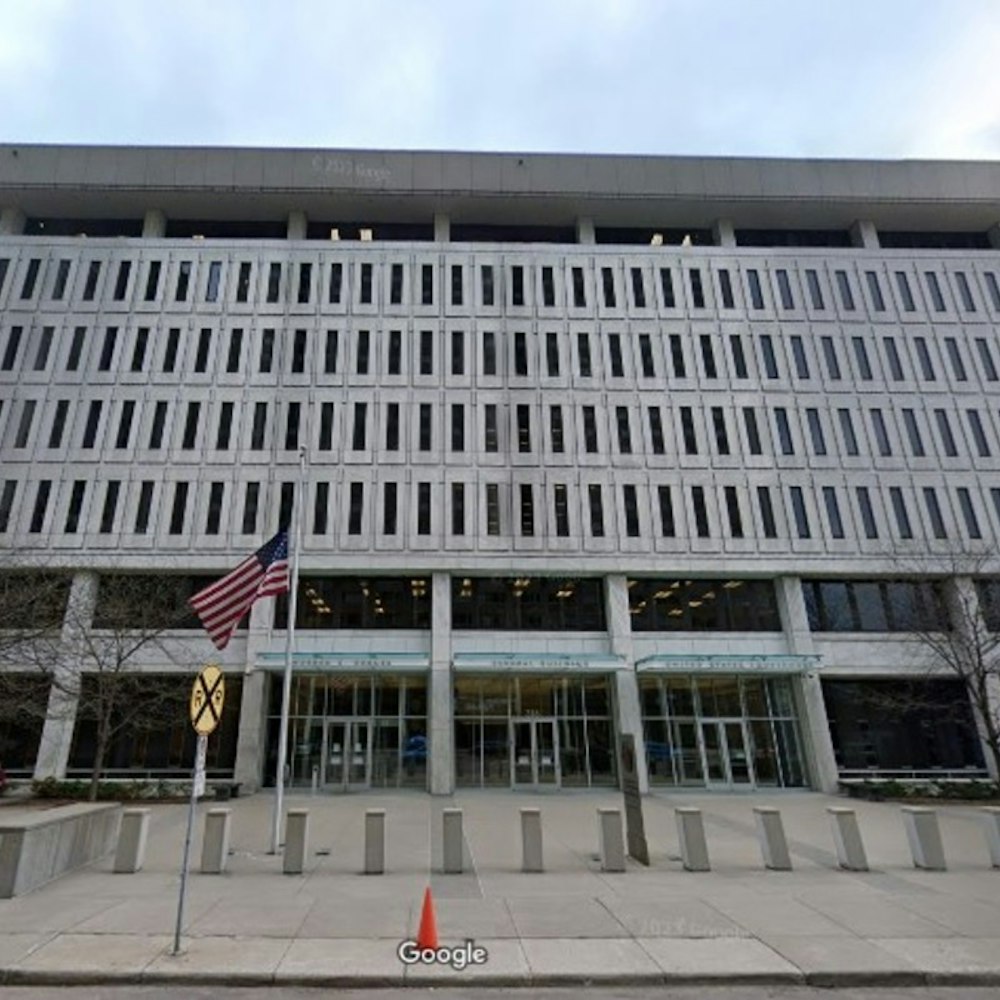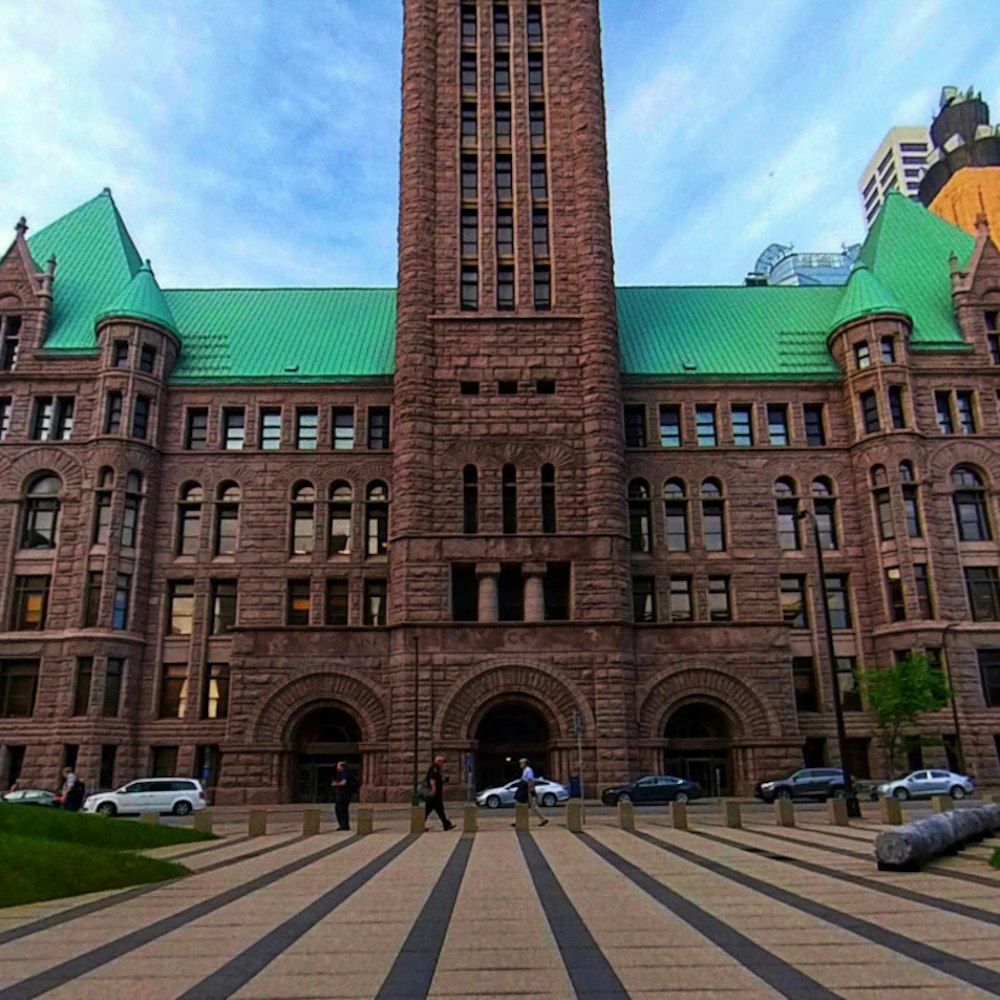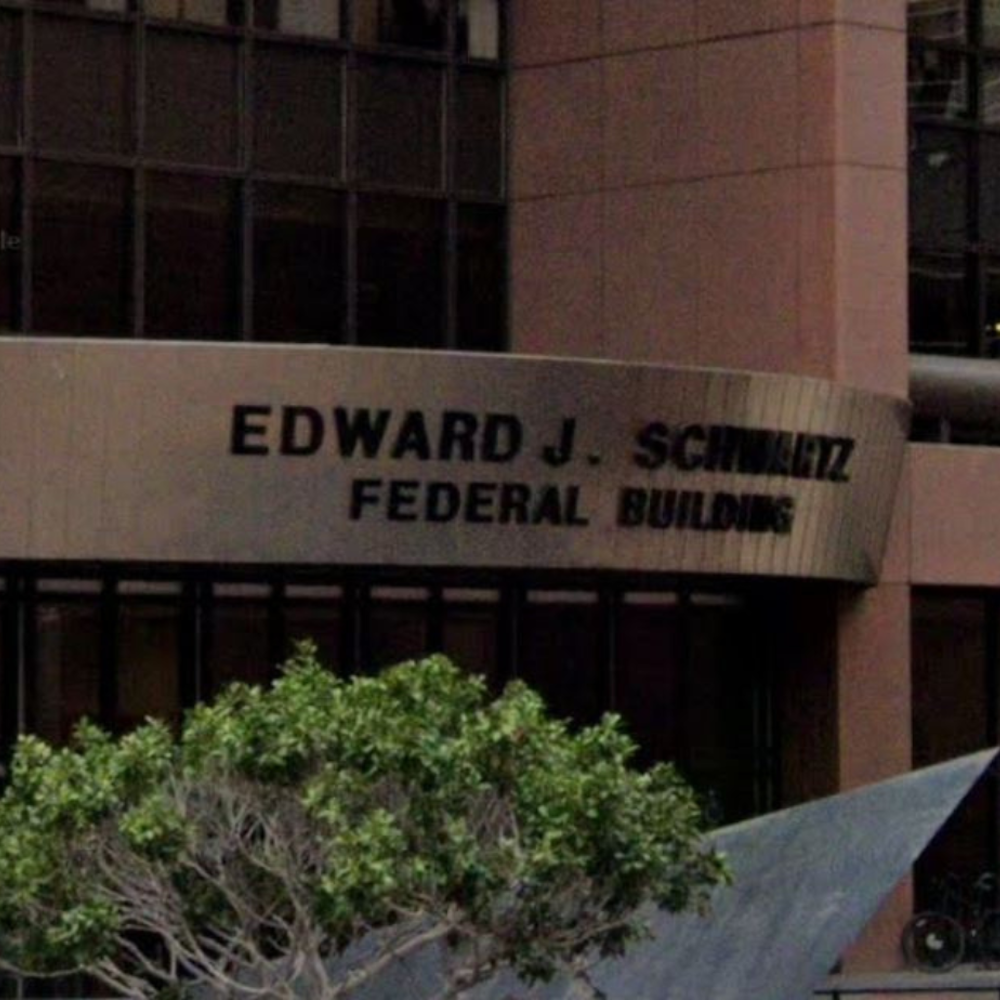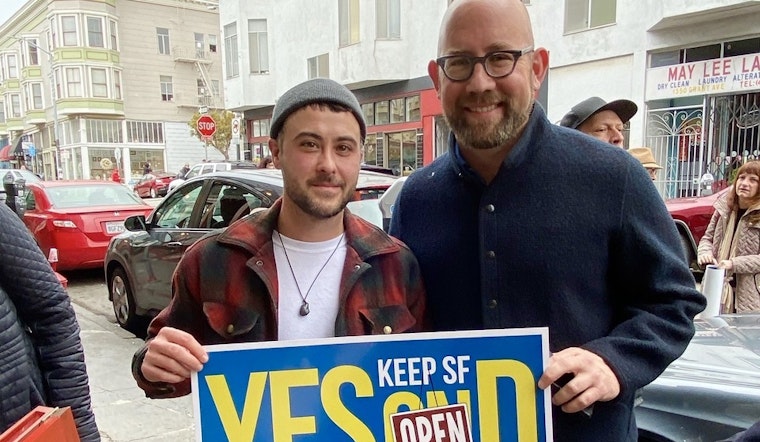
In recent years, Castro businesses of all types have struggled to stay open.
Just two weeks ago, Dapper Dog (417 Castro St.) and Slurp Noodle Bar (469 Castro St.) closed within a day of each other, adding to the growing storefront vacancy problem.
According to a count by Hoodline, there are currently 67 ground-floor vacancies in the Castro, including 10 spaces either under construction or temporarily closed.
2019 was an especially difficult year, with 32 business closures, 18 of which had been open for more than 10 years. Included on that list was Does Your Mother Know, which just reopened last week.
On the other side of the ledger, between 2018 to the present, 34 new businesses have opened in the Castro: 11 in 2018, 21 in 2019 and 2 in 2020.
Hoodline sat down with District 8 Supervisor Rafael Mandelman, Castro Merchants President Masood Samereie and Castro/Upper Market Community Benefit District (Castro CBD) Executive Director Andrea Aiello to discuss the problem and how they plan on addressing it.
District 8 Supervisor Rafael Mandelman
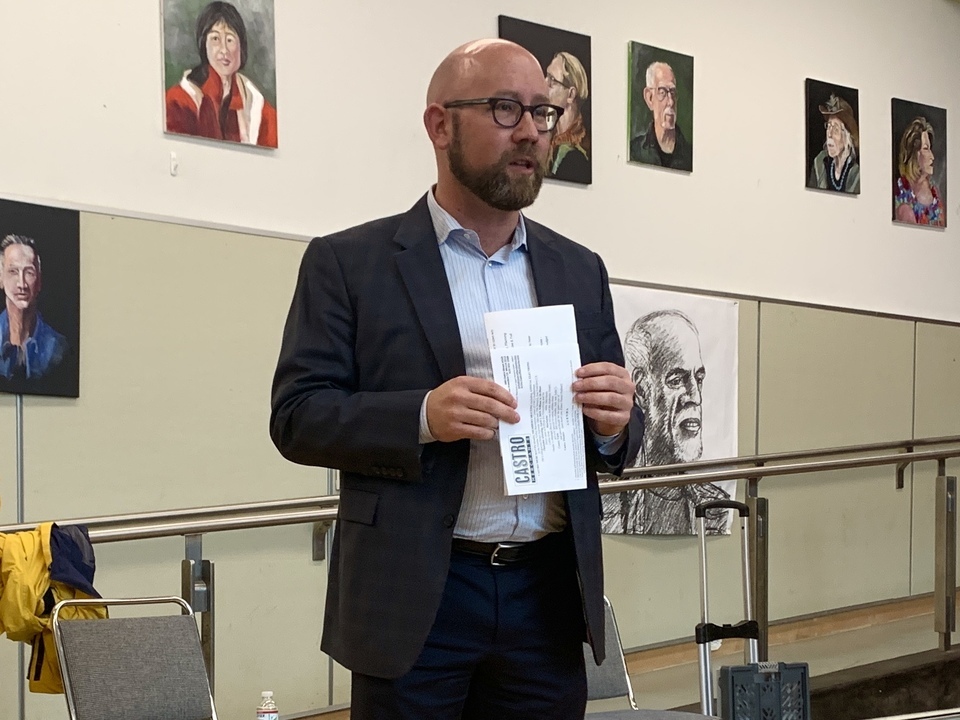
In a recent Hoodline article about the first year of operations for several new businesses in the Castro, bureaucracy and red tape emerged as a common concern.
Mandelman told Hoodline he plans to work on removing some of the red tape, and pointed towards Supervisor Aaron Peskin's discussion around fee reductions as one solution.
Mandelman said he's also looking at other ideas like creating a small business ombudsperson and beefing up the Office of Small Business.
Last year, in order to spur new businesses, Mandelman relaxed zoning restrictions along Upper Market to principally permit ground floor restaurants, art galleries and some non-profits.
However, the two blocks of Castro between Market at 19th Streets were not included in that change. Recent closures have demonstrated that the area is not immune from the vacancy problem. Mandelman says he's considering zoning changes for the area as well.
"Each of these businesses has its own story and its own unique set of factors and contributing things that made it hard for them to survive," said Mandelman about the growing number of vacancies. "But the common denominator for me over the last several years in the Castro is the declining street environment that I think depresses foot traffic."
Mandelman said people that live in the neighborhood are not going out as much. "These establishments and their employees are finding themselves engaging with really difficult, challenging, sick people coming in all the time," he said. "Each day is a struggle in a way that I don't think it was 10 years ago."
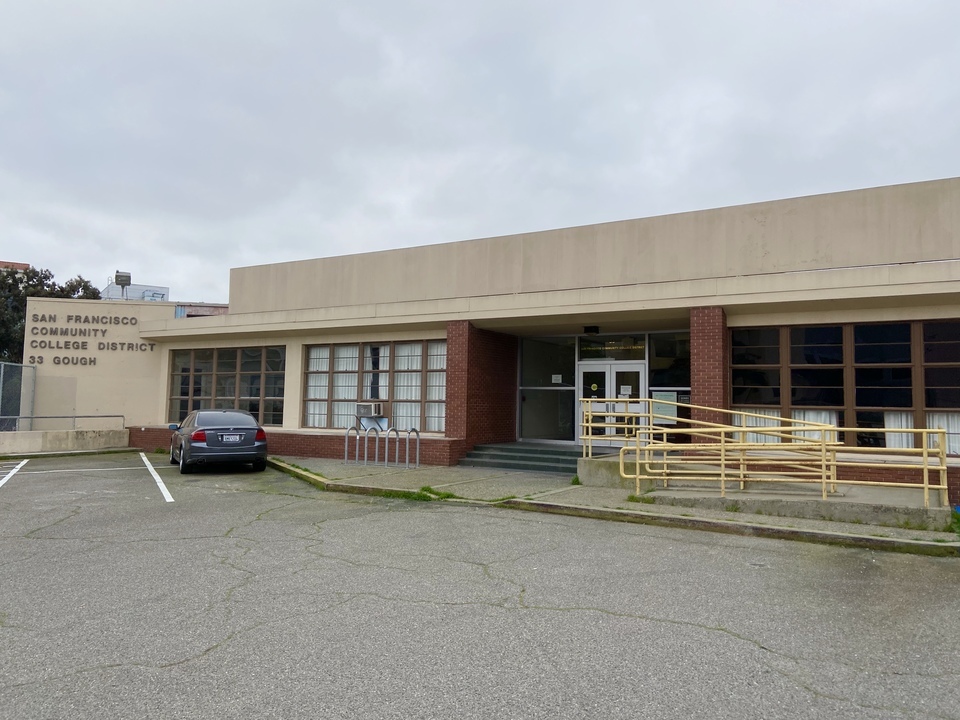
Mandelman acknowledges this situation exists in many neighborhoods, however he specifically pointed toward the Mission, Tenderloin and the Castro as most affected.
"Hayes Valley, the Marina and the West side are not dealing with a similar situation," said Mandelman.
Mandelman said he and his staff spend a majority of their time on street conditions. "The list of homeless people we know of who are super-sick is growing unfortunately."
Mandelman acknowledged that so far the city's response has not been strong. "We don't have a good strategy for doing that," he said.
"Is there a tipping point that if we do enough we start improving conditions," Mandelman said, "or is the strategy fundamentally flawed in some way that we don't see?"
While Mandelman said he's seen some impact in certain areas of the district since he's been in office, the retail area of the Castro has not gotten better. "The situation on 16th Street has never been worse," he said.
"We have a pretty sizable minority of folks who passionately feel it's inhumane to displace them from where they're staying," Mandelman said about sidewalk encampments. However, he said, "we have more folks who want to be humane and are also unwilling to continue to have these encampments."
"What the city is functionally saying to those people right now 'is you are on your own'," Mandelman said. "It's not right, it's not acceptable."
"It's upsetting for me as a public official in this city that we are not able to meet what seem to me like basic standards of decency, humanity and civilized life," he said.
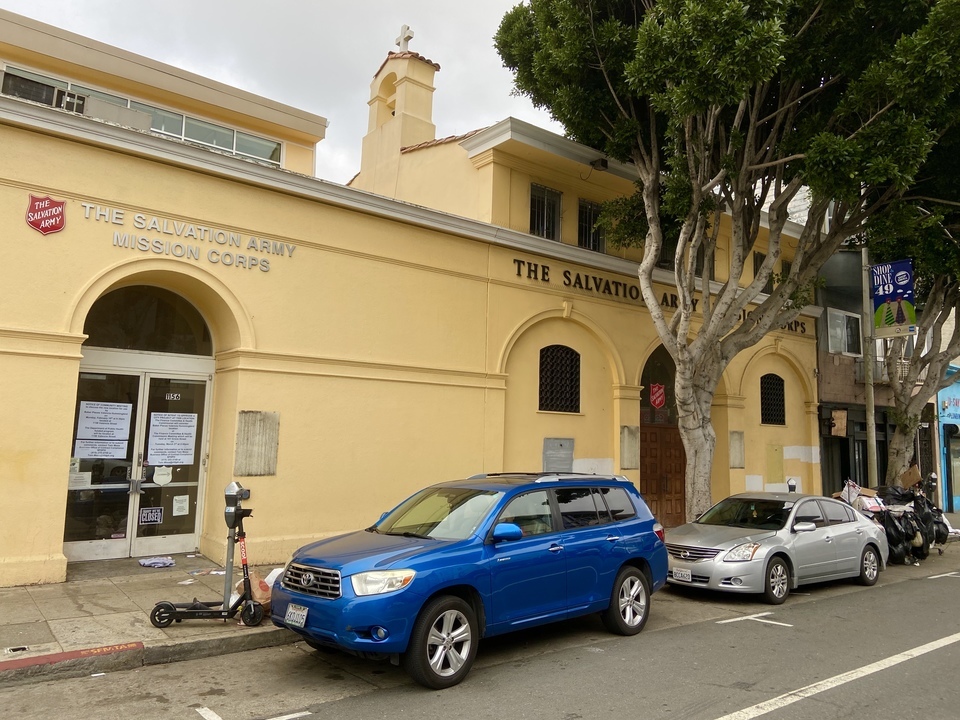
To address these concerns, Mandelman, along with Mayor Breed, introduced a resolution last week for a proposed Community Hummingbird Place, a shelter for SF residents experiencing homelessness and behavioral health issues, in District 8 at 1156 Valencia. If approved, the former Salvation Army would be converted to a 30-bed facility and could be open by Spring. A community meeting on the proposal was held earlier this week.
"It is my hope that the Valencia Street Community Hummingbird will make a positive contribution to solving the crisis on our streets in District 8 and citywide, and that this model will be replicated across the City," Mandelman said.
Last week Mayor Breed's office also announced plans to open the city's first meth sobering center at 180 Jones. A meth sobering center was the number one recommendation from Breed's Methamphetamine Task Force, which Mandelman served on.
Mandelman also pointed towards the addition of a Navigation Center in the Upper Market area. A former City College of San Francisco site at 33 Gough is slated to be converted into a 200 bed facility by year's end.
Castro Merchants President Masood Samereie
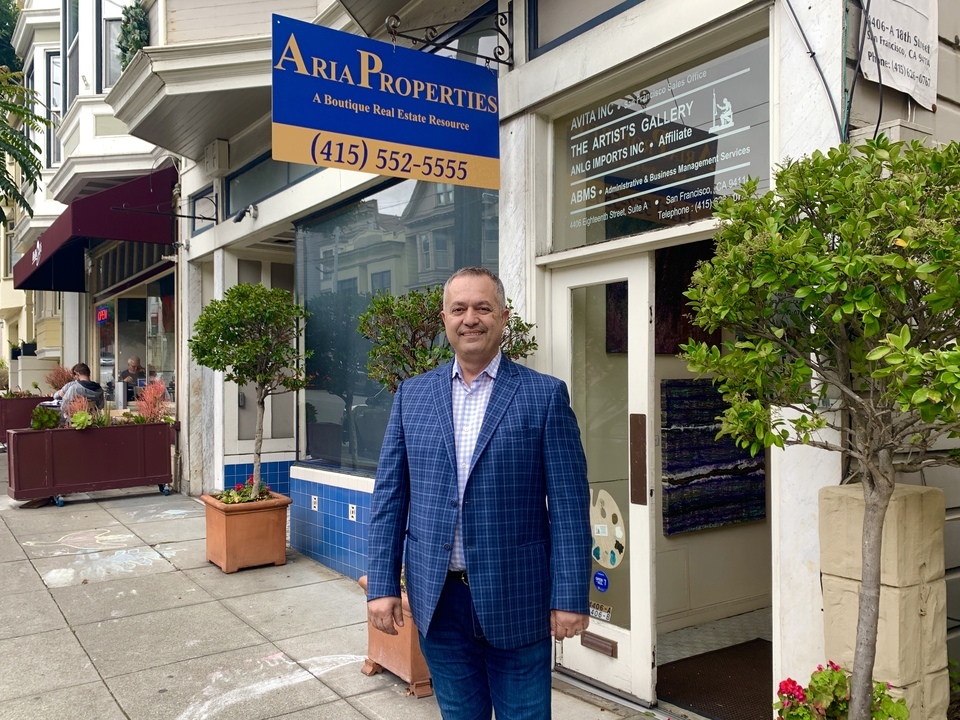
Since taking over as Castro Merchants President last year, Masood Samereie has settled into the role.
At the time, a March 2019 report from the Board of Supervisors' Budget & Legislative Analyst found that 9.5% of retail spaces in the Upper Market/Castro District were vacant
Samereie told Hoodline he believed the multiple retail closures were a 'coincidence'.
Now a year later, Samereie said that after getting more involved and learning about the city politics and market forces, he's understanding why so many businesses have closed.
"There are multiple factors why everyone is closing," said Samereie.
According to Samereie, "times have changed, people's habits have changed." Samereie pointed towards the increase in people shopping online and ordering food through delivery apps.
Just eight years ago San Francisco had the largest number of restaurants per capita at 39.3 restaurants per 10,000 households. Samereie believes the market is now correcting itself after nearly ten years.
"I'm trying to take small steps," said Samereie. "Everybody talks about vacancies, you gotta remember and appreciate all the new business," he added.
Samereie is currently working with Supervisor Mandelman on streamlining the permitting process. He said he believes improvement will require a group effort from neighborhood organizations including Duboce Triangle Neighborhood Group, Eureka Valley Neighborhood Group, Dolores Heights Improvement Club and Neighborhood Action Group.
One idea Samereie said he's considering is finding a way to relax the city's formula retail rules.
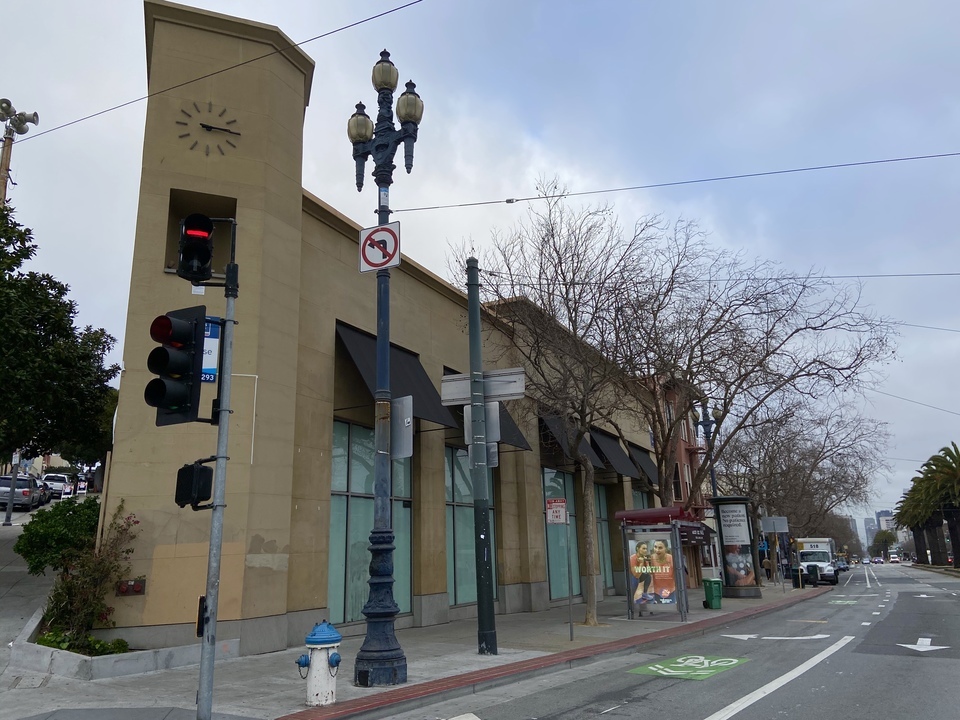
"We could use a Trader Joe's and an Apple Store in this neighborhood," said Samereie. "They bring foot traffic and they provide services to residents and other merchants."
Samereie said he hopes to see Supervisor Aaron Peskin's Prop. D Retail Vacancy Tax pass in March, and believes it could alleviate some of the problems. "Peskin's office actually implemented most of our ideas into the legislation," Samereie said.
He said he supports efforts to help people in the community experiencing homelessness, behavioral health and substance use issues, like 33 Gough, Community Hummingbird and the Meth Sobering Center.
With approximately 30-40 beds at 33 Gough dedicated to District 8 and the entirety of Community Hummingbird, Samereie said he believes that's a good start.
"If [...] 2-3 homeless people who need help get treatment, it would be a victory," said Samereie.
Conservatorship is another topic Samereie hopes to work on more in 2020 with newly elected District Attorney Chesa Boudin.
Prior to the November election, Samereie worked with previous District Attorneys George Gascon and Suzy Loftus on the subject. Now with Boudin in office, Samereie said "it's a whole new ballgame."
Castro CBD Executive Director Andrea Aiello
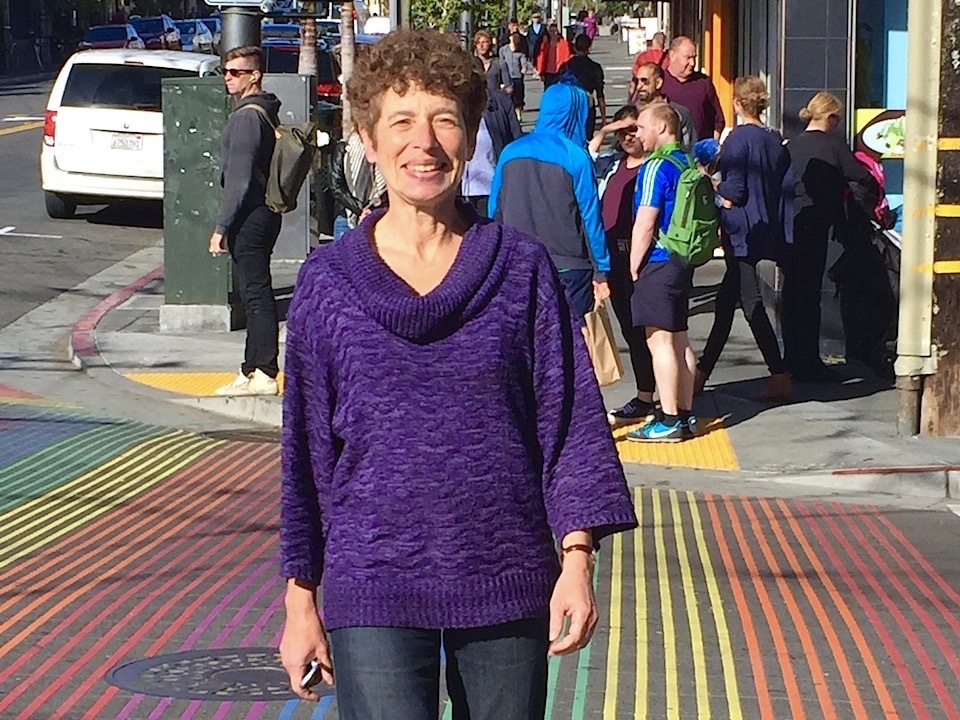
"The Castro CBD's core role is cleaning and making a welcoming neighborhood," said executive director Andrea Aiello.
For the unacquainted, the CBD is funded through an assessment fee on property owners in the Castro area, based on a formula calculated using linear frontage, building square footage and lot size.
The CBD then uses that money to clean and brighten the neighborhood, promote public safety and lobby for larger, city-funded improvements.
Aiello said her organization shares in the concern about local merchants. That's why it recently undertook a retail strategy report in partnership with a Cushman & Wakefield retail researcher, interviewing local merchants about their needs.
The top three requests: more outreach to neighborhood groups and local merchants; improving public safety; and creating more foot traffic.
When it comes to public safety, the Castro CBD collaborates with local businesses to fund an SF Patrol Special Officer in the neighborhood In the evening hours. The private police patrol public spaces in the Castro, including Jane Warner Plaza, Harvey Milk Plaza, the bikeway behind Safeway and the public restrooms.
Aiello said the Castro CBD is working on securing additional funding for more public safety efforts.
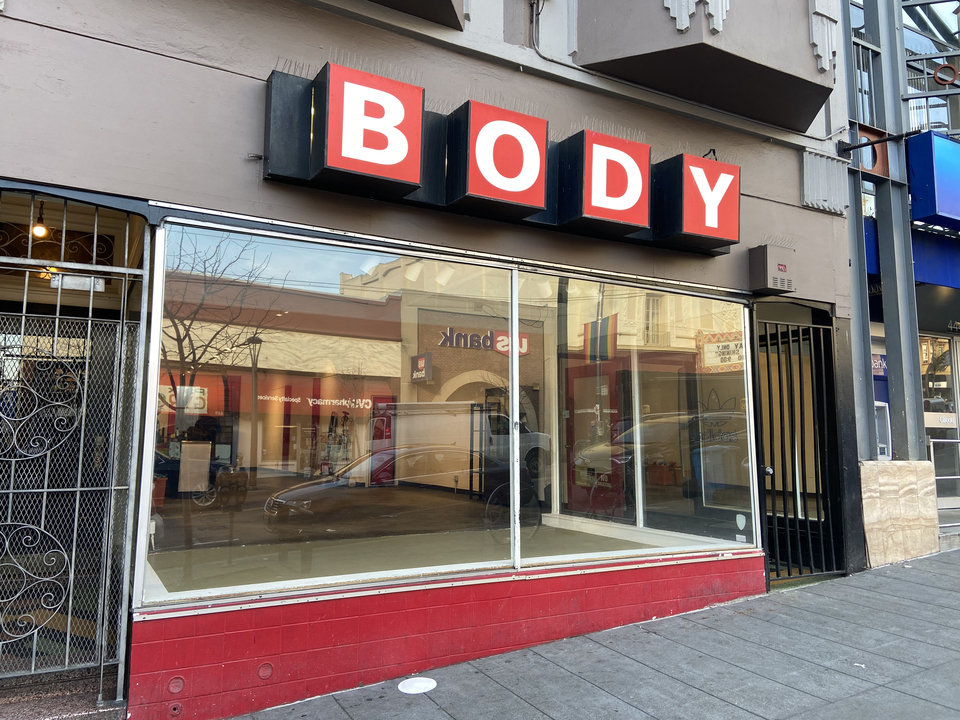
In order to address some of the neighborhood's storefront vacancy issues, the Castro CBD has also received funding to hire a Commercial Corridor Manager, dedicated specifically to working with merchants, commercial real estate brokers and landlords to retain existing businesses and help new ones navigate the approval process.
"They'll also help find new businesses that want to expand to the Castro ... [and] show people what it's going to take to get through all of this," Aiello said.
The role doesn't yet have a starting date; Aiello is currently working on the contract paperwork with the Office of Economic and Workforce Development.
Outreach to brokers will be critical — Aiello said that the retail strategy report found that many of them are hesitant about working in the Castro.
"They think it takes so long to get anything through approvals that they'd rather spend their energy downtown, where it's easier," she said.
While Aiello acknowledges it's unfortunate to see many longtime businesses depart the Castro, she said the Castro CBD does not have the funding to prevent closures.
"I don't see us having the resources to start a negotiation with any business not doing well," said Aiello.
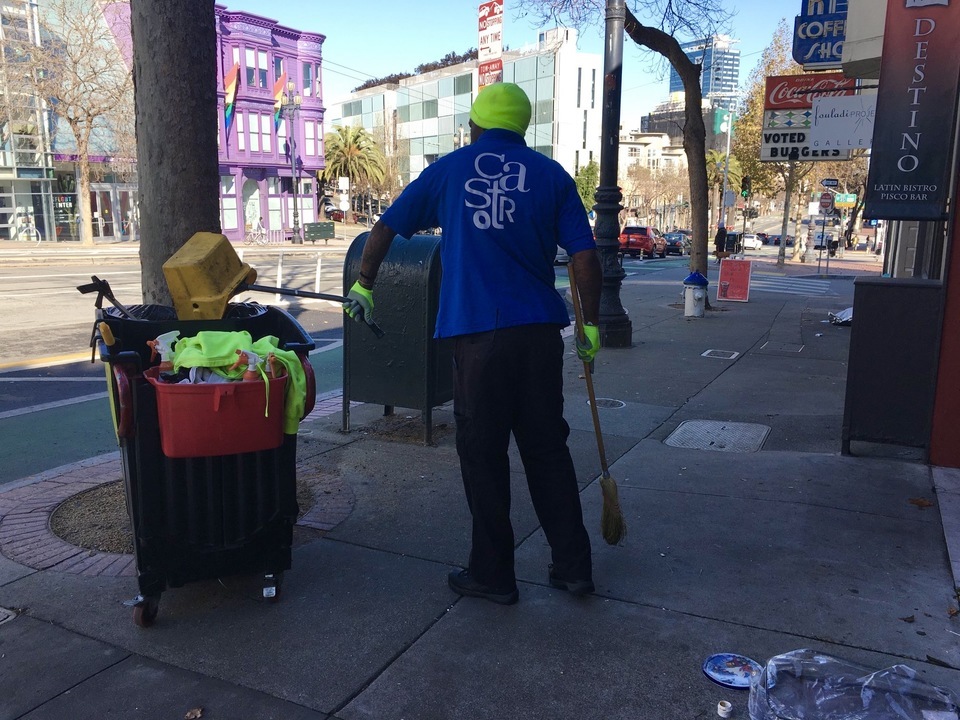
The Castro CBD is currently undergoing its first renewal period since its 2005 formation. Its original term was 15 years, and those who pay assessment fees to the organization now need to vote to approve its continued operation.
The CBD currently has a budget of $1.1 million for the 2019-20 fiscal year, with $534,000 of that funded through the assessment fees on property owners. The remainder is funded through the city, donations, service contracts and sponsorships.
But if the renewal is approved, Aiello says that beginning in January 2021, assessments will increase to an overall total of approximately $819,000.
Renewal petitions are currently in the mail, indicating the increased assessment fees each property owner will be asked to pay. For the first round, at least 30% of property owners must confirm they're willing to pay. Aiello is confident that the CBD will hit that target.
If it does, the Department of Elections will mail out official ballots sometime in April or May. At that time, at least 51% of the Castro's property owners must confirm they'll pay the assessment fees assigned to them.
The results of the vote will be announced at a hearing sometime this summer. An exact date hasn't been set yet, but it will need to be done in time for the city assessor's office to send out the official assessment charges in August.
The vote is high-stakes: if the CBD doesn't get 51% of property owners on board, it'll be forced to dissolve and return the owners' remaining assessment money to them.
"We feel positive about it," said Aiello. "It's just a matter of making sure people mail in their ballots."





